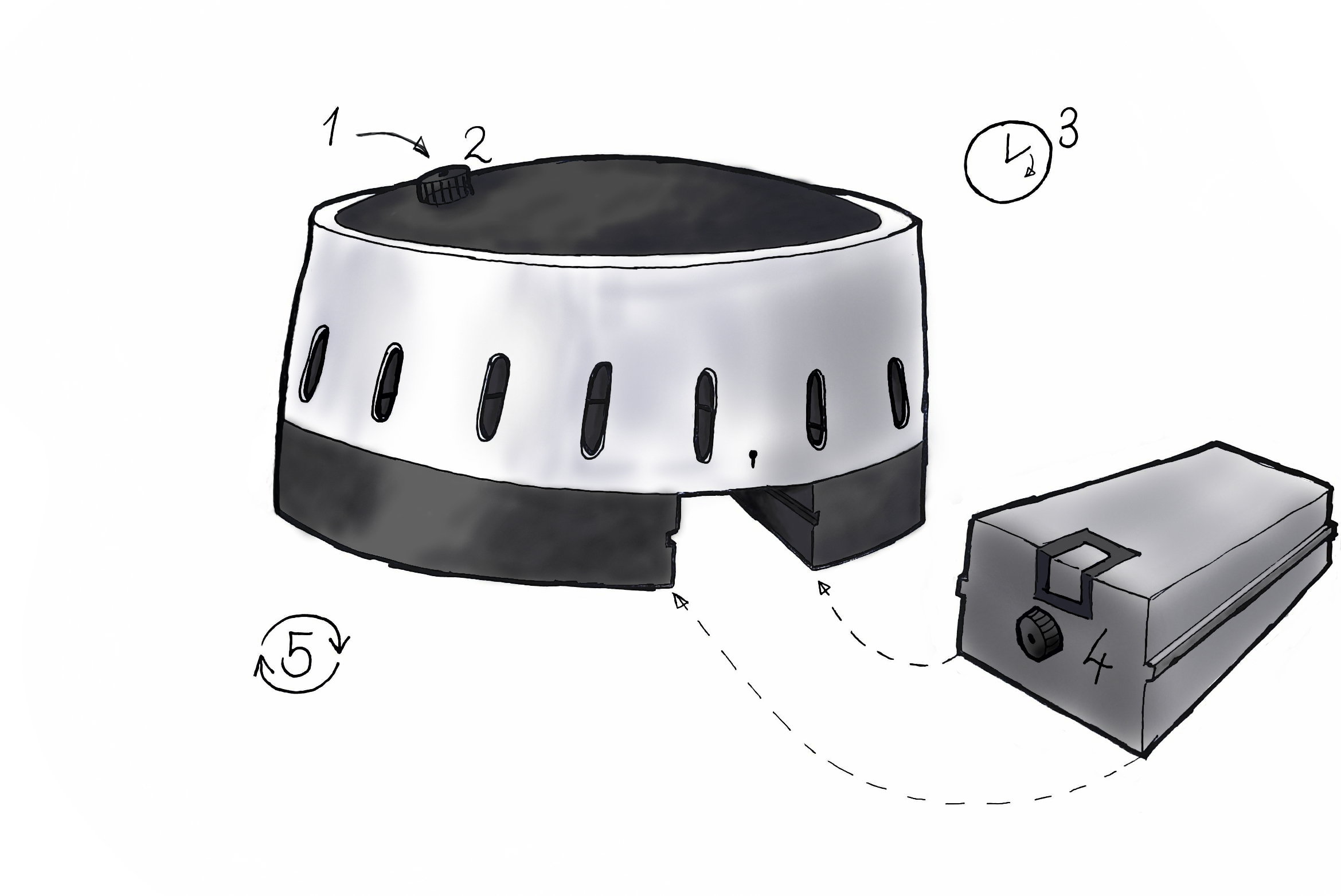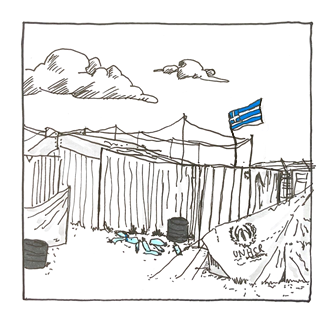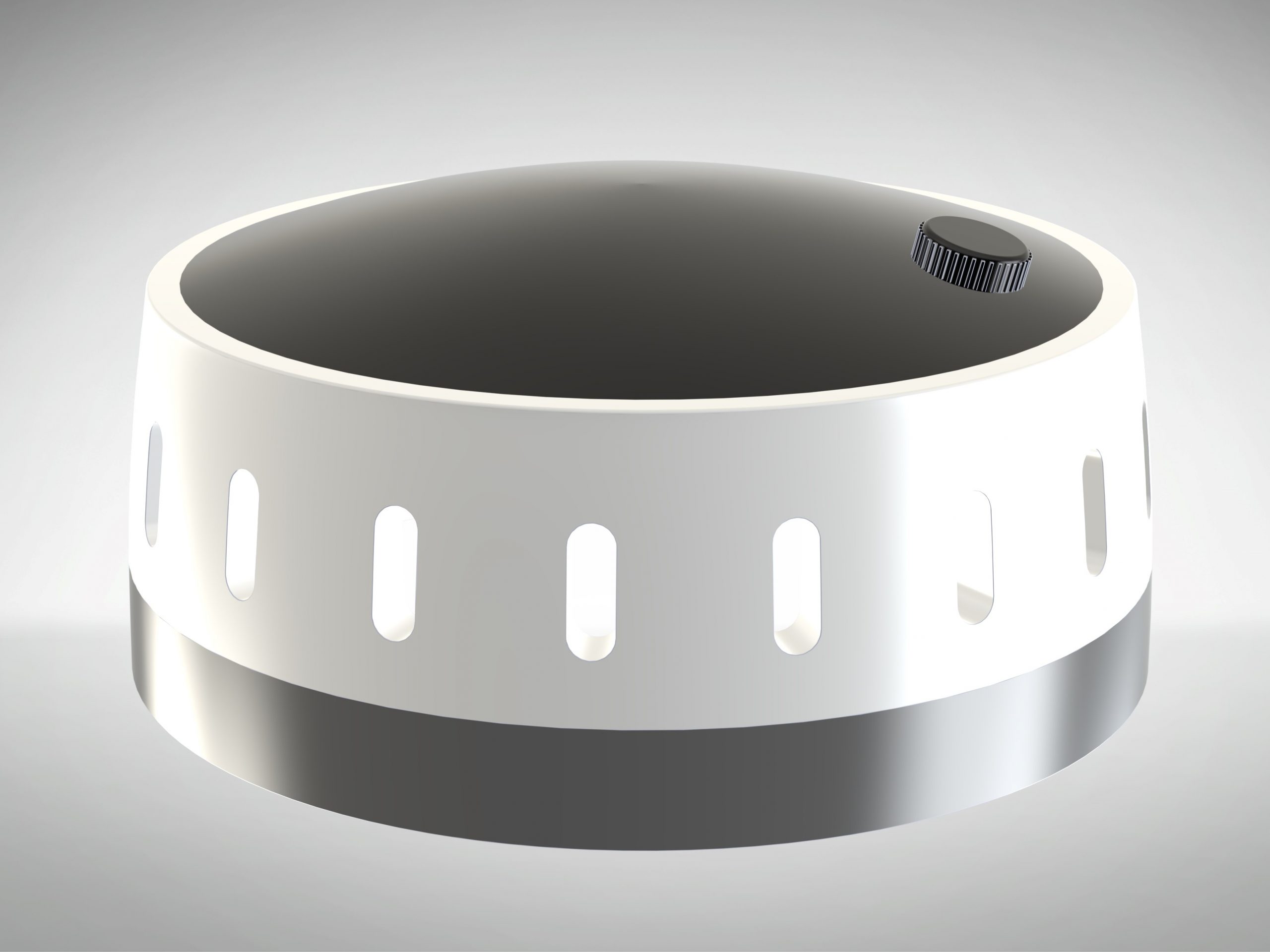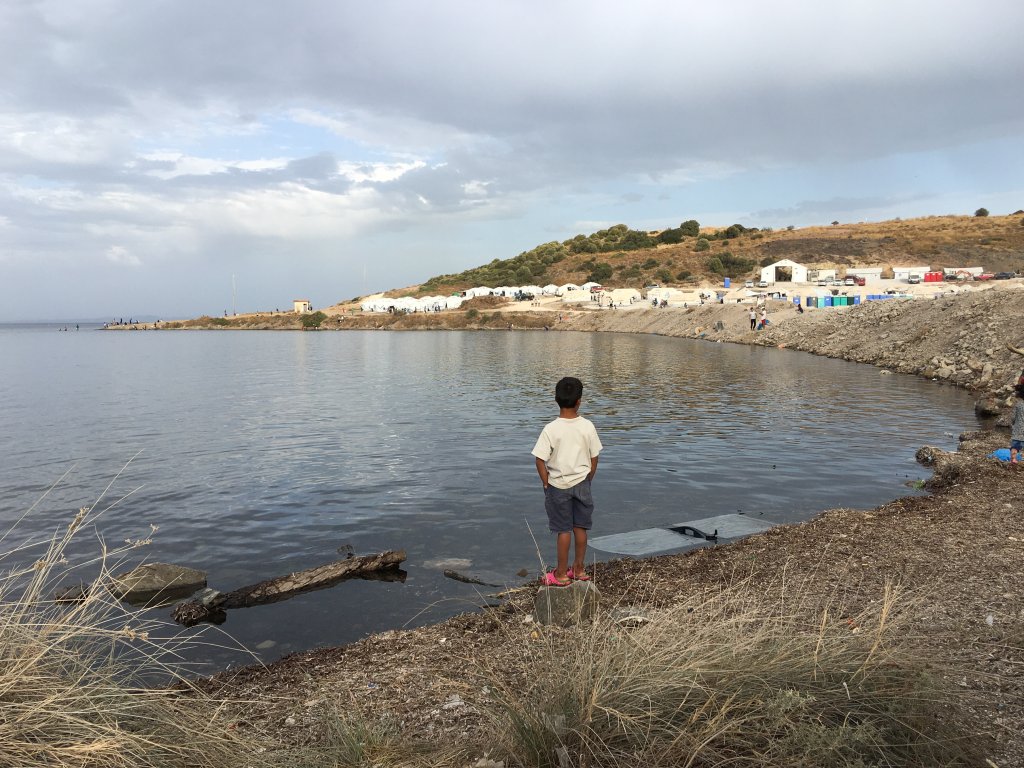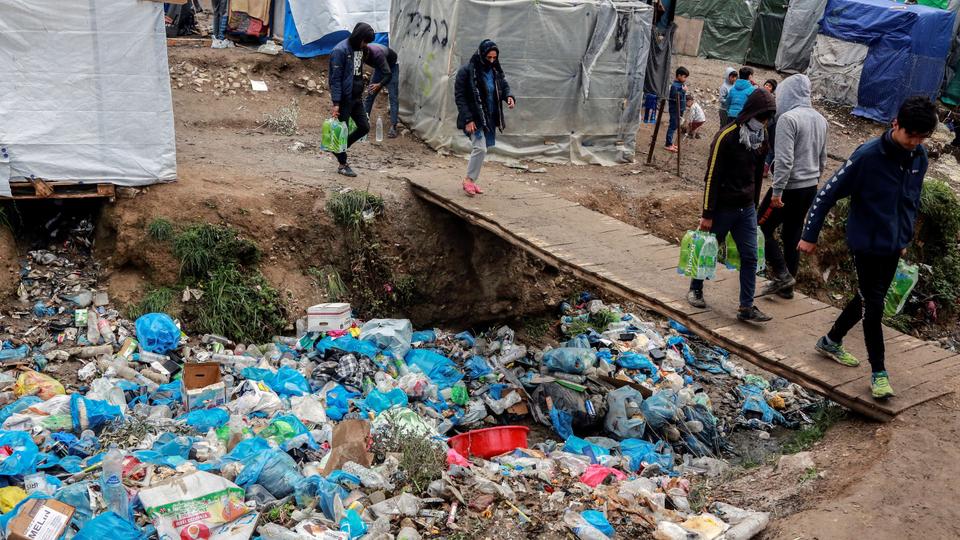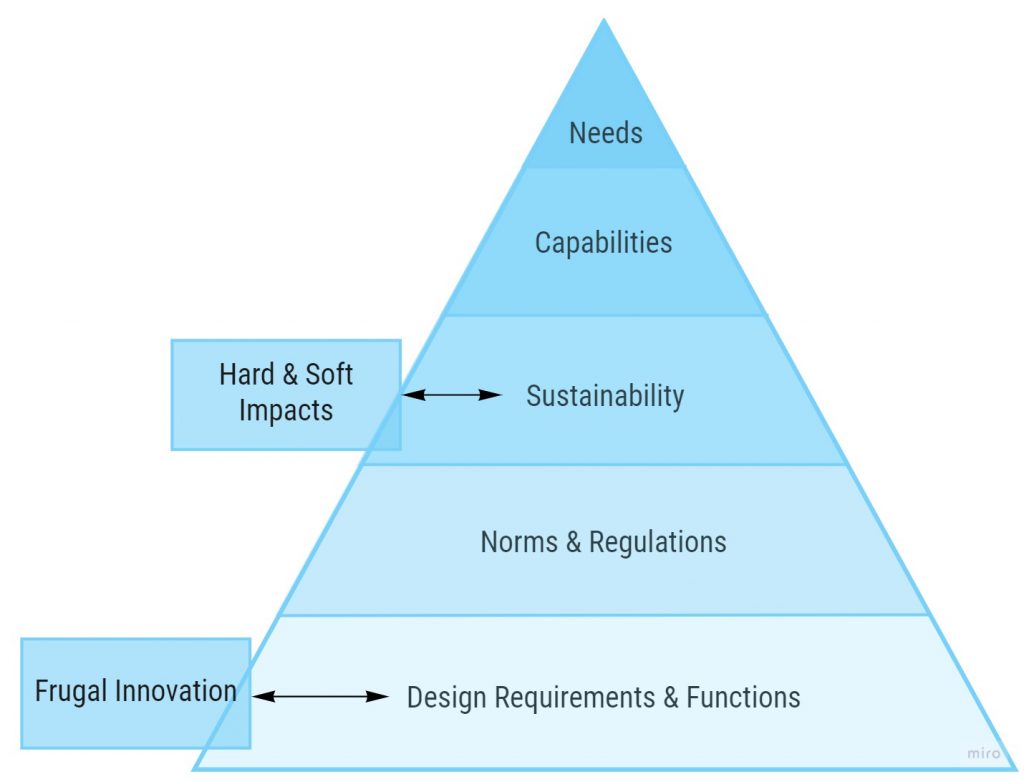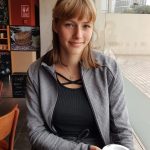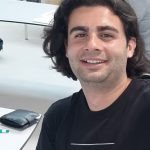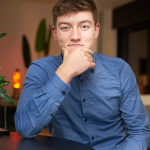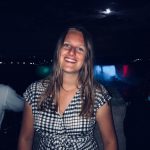Our solution is a seawater distillation device, a solar still, that through evaporation, filters seawater with only the power of the sun.
It produces safe drinking water, uses clean and free energy, is easy to use and is 95% biodegradable. On top of that, the solution is cheap and low tech, mass-producible, and optimised for a shipment.
It would reduce the need for queuing drastically, therefore, decreasing the transmission rate of COVID-19. We believe that our solution can solve the drinking-water shortage in Camp Moria.
